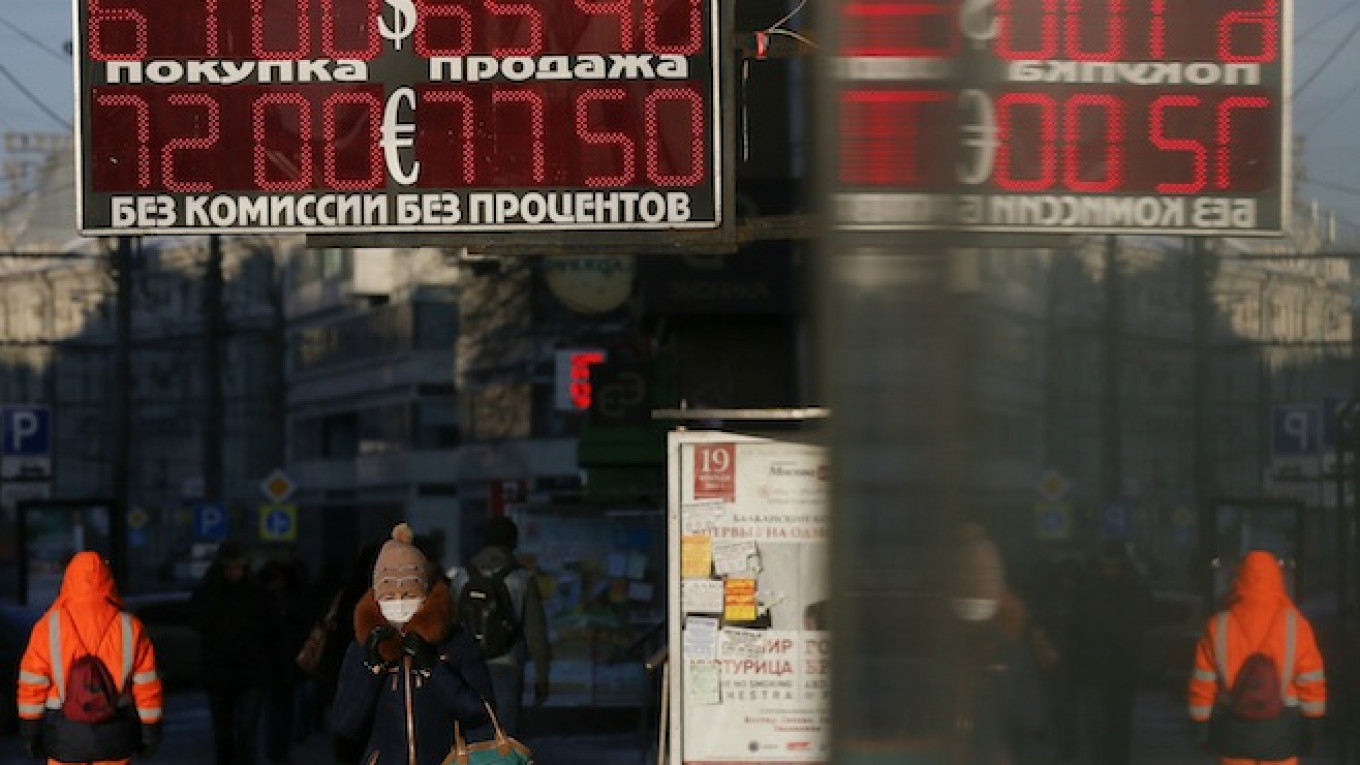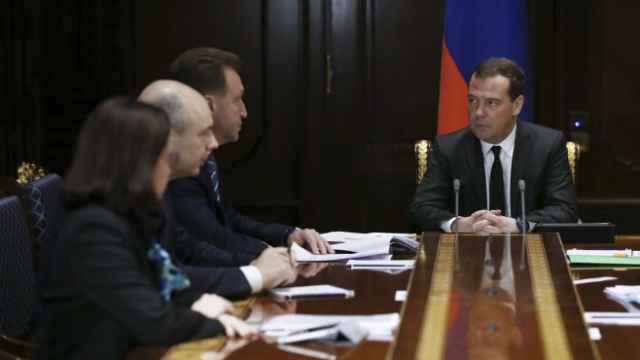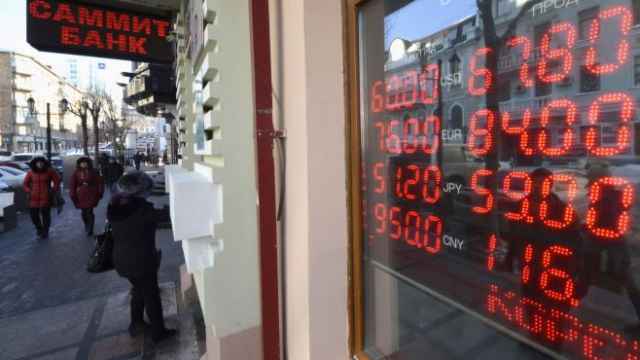Russia's ruble weakened on Thursday as global oil prices resumed their slide and investors were nervous at the prospect of Russia being downgraded to 'junk' status.
At 0840 GMT the ruble was around 1 percent weaker against the dollar at 65.43 and was also 1 percent weaker against the euro at 77.08.
The ruble often takes its lead from prices for oil, one of Russia's chief exports, and Brent crude fell over 2 percent on Thursday after strong gains on Wednesday.
"Yesterday's dynamics of the domestic currency market show the ruble is exclusively following prices for 'black gold' (oil), while other factors and threats have a secondary importance," analysts at Bank Zenit said in a note.
"The Finance Ministry's supportive rhetoric isn't having a noticeable effect on the ruble," the analysts wrote.
Finance Minister Anton Siluanov said on Wednesday the ministry planned to convert part of its Reserve Fund into rubles.
Also weighing on sentiment, international ratings agency Standard & Poor's is expected to review Russia's sovereign credit ratings in the coming days.
S&P currently rates Russia at just one notch above 'junk' status with a negative outlook, and Russia's economy minister has said the likelihood of a downgrade was "pretty high."
Besides the hit to a country's image of being rated 'junk,' such a downgrade can push its borrowing costs up. Many mainstream investment and pension funds have rules preventing them from buying anything not classed as investment grade.
Russia's Central Bank said on Thursday that it had sold $650 million worth of foreign currency on Jan. 13 on behalf of the Finance Ministry.
The Central Bank replaced its head of monetary policy on Wednesday, amid criticism over its defense of the ruble, which fell more than 40 percent last year, weighed down by Western sanctions over the Ukraine crisis and a sharp drop in oil prices.
A Message from The Moscow Times:
Dear readers,
We are facing unprecedented challenges. Russia's Prosecutor General's Office has designated The Moscow Times as an "undesirable" organization, criminalizing our work and putting our staff at risk of prosecution. This follows our earlier unjust labeling as a "foreign agent."
These actions are direct attempts to silence independent journalism in Russia. The authorities claim our work "discredits the decisions of the Russian leadership." We see things differently: we strive to provide accurate, unbiased reporting on Russia.
We, the journalists of The Moscow Times, refuse to be silenced. But to continue our work, we need your help.
Your support, no matter how small, makes a world of difference. If you can, please support us monthly starting from just $2. It's quick to set up, and every contribution makes a significant impact.
By supporting The Moscow Times, you're defending open, independent journalism in the face of repression. Thank you for standing with us.
Remind me later.






